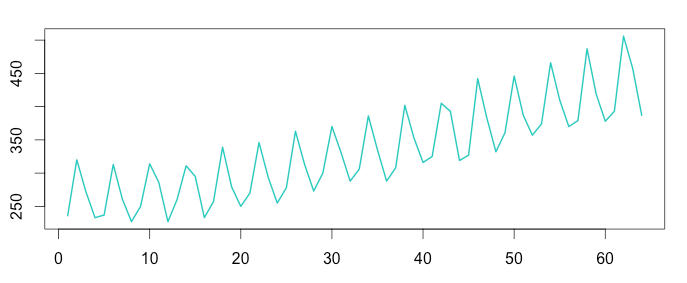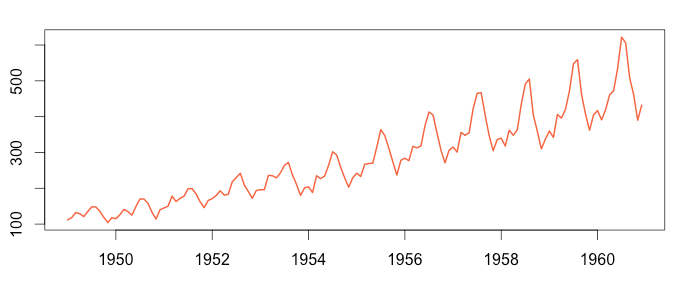Time Series Decomposition
A time series decomposition is a mathematical procedure which transform a original time series into 3 sub-time series.
Seasonal: Patterns which repeat with fixed period of time. User page visits to a website increases in the weekends, so a seasonality of 7 days is observed.
Trend: Underlying trend of metrics like User page visit count.
Random: Residual of time series after allocation into seasonal and trends time series.
There are two types of decomposition: Additive and Multiplicative. They have to be chosen correctly for successful decomposition.
Additive: The magnitude of seasonality remains constant when time series increases.
Time series = Seasonal + Trend + Random

Multiplicative: The magnitude of seasonality varies constantly with time series.
Time series = Trend * Seasonal *Random

Seasonal: Patterns which repeat with fixed period of time. User page visits to a website increases in the weekends, so a seasonality of 7 days is observed.
Trend: Underlying trend of metrics like User page visit count.
Random: Residual of time series after allocation into seasonal and trends time series.
There are two types of decomposition: Additive and Multiplicative. They have to be chosen correctly for successful decomposition.
Additive: The magnitude of seasonality remains constant when time series increases.
Time series = Seasonal + Trend + Random

Multiplicative: The magnitude of seasonality varies constantly with time series.
Time series = Trend * Seasonal *Random

Comments
Post a Comment